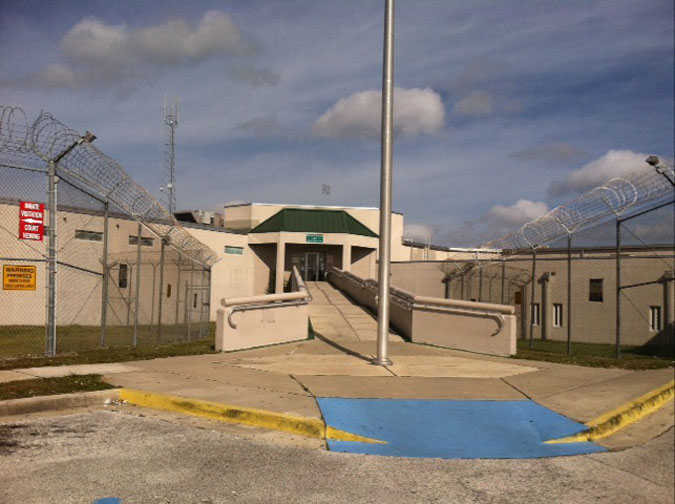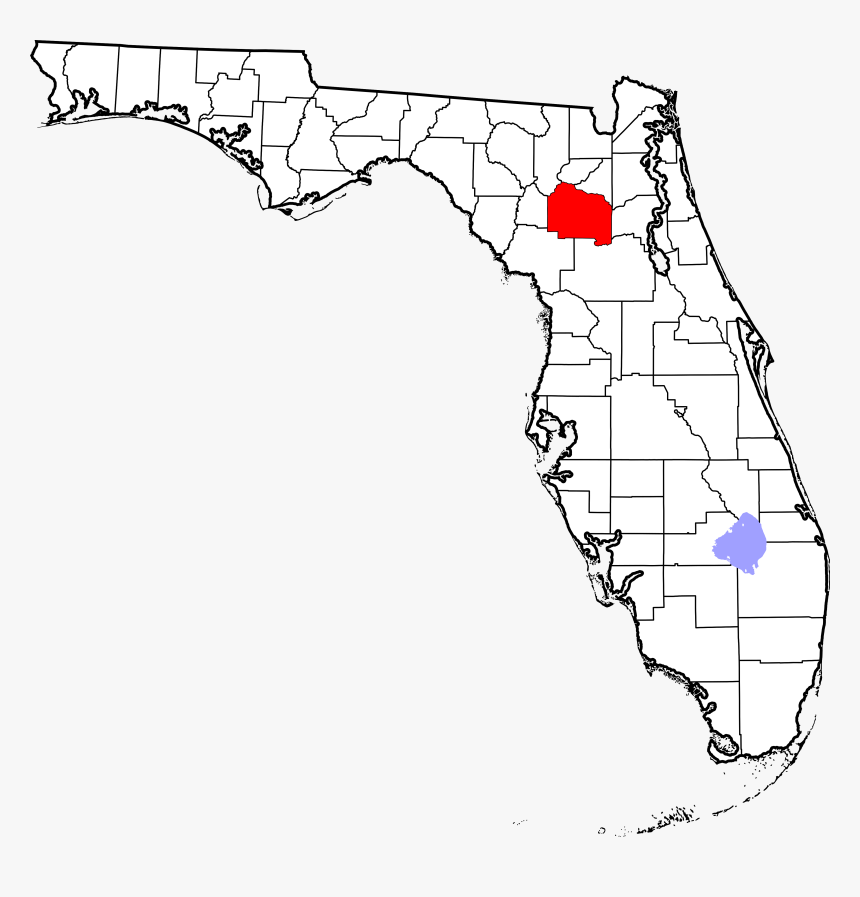Ocala Florida County Jail: Your Guide To Understanding The System
Ever wondered what happens behind the walls of the Ocala Florida County Jail? If you’re searching for answers about this facility, you’ve come to the right place. Whether it’s a loved one in custody or simply curiosity about the legal system, we’re here to break it down for you in plain English. The Ocala Florida County Jail isn’t just a building; it’s a key part of the Marion County justice system, and understanding it can be crucial for anyone navigating the complexities of the law.
This article dives deep into everything you need to know about the Ocala Florida County Jail, from its operations to inmate rights and beyond. We’ll explore how it works, what to expect, and how to stay informed if someone close to you is involved. So, grab a cup of coffee, and let’s get started.
Before we jump into the details, let’s set the stage. The Ocala Florida County Jail isn’t just a detention center; it’s a reflection of the broader criminal justice system in Marion County. Understanding how it operates and the rights of those inside is vital for anyone who wants to navigate this often-confusing landscape. Stick with us as we unpack the essentials step by step.
Read also:Unveiling The Mysteries Of The Chinese Horoscope For 1985 Insights And Predictions
Understanding the Basics of Ocala Florida County Jail
What Exactly Is the Ocala Florida County Jail?
Alright, let’s start with the basics. The Ocala Florida County Jail is a detention facility located in Marion County, Florida. It’s where individuals accused or convicted of crimes are held while awaiting trial or serving short sentences. This jail isn’t just a holding cell; it’s a critical component of the Marion County Sheriff’s Office, which oversees law enforcement and corrections in the area.
Now, what makes this jail unique? For starters, it’s designed to handle a wide range of cases, from minor offenses to more serious charges. The facility is equipped to manage both pre-trial detainees and those serving sentences of less than a year. Understanding its role in the justice system is key to grasping how it functions on a day-to-day basis.
Here’s a quick breakdown of what you should know:
- Operated by the Marion County Sheriff’s Office
- Holds pre-trial detainees and sentenced individuals
- Focuses on rehabilitation and reintegration
Location and Facilities
Located in the heart of Ocala, Florida, the jail is easily accessible for family members and legal representatives. The facility itself is a modern structure designed to handle the needs of its inmates while maintaining security. Inside, you’ll find separate sections for men and women, medical facilities, and areas dedicated to rehabilitation programs.
One of the standout features of the Ocala Florida County Jail is its commitment to providing resources for inmates. From educational programs to mental health support, the facility aims to help detainees turn their lives around. Of course, like any correctional institution, it has its challenges, but the staff works hard to ensure a safe and structured environment for everyone involved.
How Does the Jail Operate?
Inmate Admission Process
When someone is arrested and brought to the Ocala Florida County Jail, they go through a series of steps to determine their status. First, there’s booking, where personal information is recorded, and fingerprints are taken. Next comes classification, where the inmate’s risk level is assessed to determine where they’ll be housed within the facility.
Read also:Lolli And Pops A Sweet Journey Into The World Of Gourmet Lollipops And Candies
Here’s a simplified version of the admission process:
- Booking: Personal details and fingerprints
- Classification: Risk assessment
- Orientation: Inmates learn about rules and available programs
Daily Life Inside the Jail
Life inside the Ocala Florida County Jail isn’t exactly a walk in the park, but it’s structured to maintain order and provide opportunities for personal growth. Inmates follow a strict schedule that includes meal times, recreation, and access to educational resources. While the environment can be challenging, the facility offers programs designed to help detainees prepare for life after release.
Some key aspects of daily life include:
- Structured routines
- Access to educational and vocational training
- Recreational activities
Inmate Rights and Responsibilities
Knowing Your Rights
Contrary to popular belief, inmates in the Ocala Florida County Jail still have rights. These include access to legal counsel, the ability to communicate with family members, and protection from abuse or neglect. Understanding these rights is crucial for both inmates and their loved ones.
Here’s a list of some key rights:
- Access to legal representation
- Communication with family and friends
- Protection from discrimination or abuse
Responsibilities of Inmates
While inmates have rights, they also have responsibilities. These include following the rules of the facility, participating in assigned programs, and maintaining good behavior. Failure to meet these responsibilities can result in consequences, such as loss of privileges or disciplinary action.
Responsibilities include:
- Compliance with jail rules
- Participation in required programs
- Maintaining good conduct
Visitation and Communication
Visiting an Inmate
Visiting a loved one in the Ocala Florida County Jail requires some preparation. First, you’ll need to schedule a visit in advance and follow specific guidelines regarding dress code and prohibited items. Visitation hours are limited, so it’s essential to plan accordingly.
Here’s what you need to know:
- Schedule visits in advance
- Follow dress code and prohibited items list
- Stick to designated visitation hours
Communication Methods
Beyond in-person visits, there are other ways to stay in touch with inmates at the Ocala Florida County Jail. Phone calls and letters are common methods of communication, and the facility provides guidelines for both. It’s important to note that all communications are subject to monitoring for security purposes.
Communication options include:
- Phone calls (subject to monitoring)
- Letters (follow specific guidelines)
Rehabilitation and Support Programs
Education and Vocational Training
The Ocala Florida County Jail places a strong emphasis on rehabilitation, offering a variety of educational and vocational programs. These programs aim to equip inmates with the skills they need to succeed upon release. From GED classes to trade skills, the options are diverse and designed to meet the needs of different individuals.
Key programs include:
- GED preparation
- Vocational training
- Life skills workshops
Mental Health and Counseling
Mental health support is another critical component of the jail’s rehabilitation efforts. Inmates have access to counseling services and mental health programs designed to address various issues. This support is vital for helping detainees cope with the challenges of incarceration and prepare for life outside the walls.
Mental health resources include:
- Counseling services
- Mental health workshops
- Support groups
Legal Procedures and Bail
Understanding Bail and Bonds
If someone is detained at the Ocala Florida County Jail, one of the first questions that arises is, “What about bail?” Bail is a financial guarantee that ensures a defendant will return for their court date. Understanding how bail works and the options available can make a significant difference in the detention process.
Here’s a quick overview:
- Bail amounts vary based on charges
- Bail bonds can be arranged through licensed agents
- Payment options depend on the individual case
Legal Representation
Having proper legal representation is crucial for anyone facing charges and being held at the Ocala Florida County Jail. Whether it’s hiring a private attorney or seeking public defense, knowing your options can impact the outcome of your case. Legal counsel can help navigate the complexities of the justice system and advocate for the best possible outcome.
Legal options include:
- Hiring a private attorney
- Seeking public defense
- Consulting legal aid organizations
Community Resources and Support
Organizations Helping Families
Dealing with a loved one in jail can be overwhelming, but there are resources available to help families cope. Local organizations and support groups offer assistance ranging from emotional support to practical advice. Connecting with these groups can provide a lifeline during difficult times.
Some organizations to consider:
- Local support groups
- Nonprofits specializing in criminal justice reform
- Community outreach programs
Reentry Programs
Reentry programs are designed to help former inmates reintegrate into society successfully. These programs often focus on job placement, housing assistance, and continued education. The Ocala Florida County Jail partners with local organizations to provide these resources, ensuring that individuals have the support they need to thrive after release.
Reentry support includes:
- Job placement services
- Housing assistance
- Continued education opportunities
Conclusion: Taking Action
In summary, the Ocala Florida County Jail plays a significant role in the Marion County justice system. From understanding the admission process to exploring rehabilitation programs, this article has provided a comprehensive overview of what you need to know. Whether you’re a family member seeking information or someone interested in the workings of the facility, we hope this guide has been helpful.
Now it’s your turn. If you have questions or experiences to share, leave a comment below. And don’t forget to check out other articles on our site for more insights into the legal and correctional systems. Together, we can make a difference in how we approach justice and rehabilitation.
So, what’s your next step? Share this article, reach out for support, or dive deeper into the resources available. The journey doesn’t end here—let’s keep the conversation going!
Table of Contents:
- Understanding the Basics of Ocala Florida County Jail
- How Does the Jail Operate?
- Inmate Rights and Responsibilities
- Visitation and Communication
- Rehabilitation and Support Programs
- Legal Procedures and Bail
- Community Resources and Support



